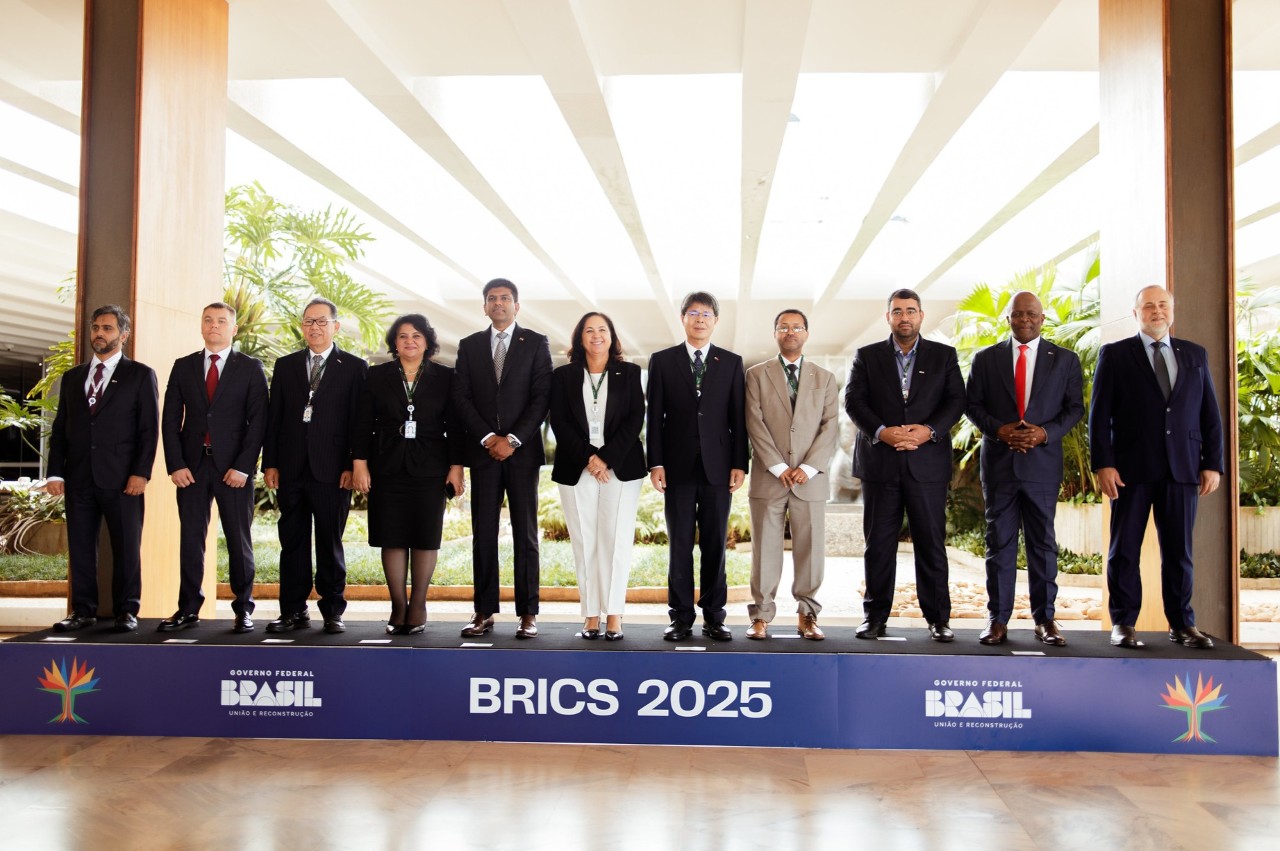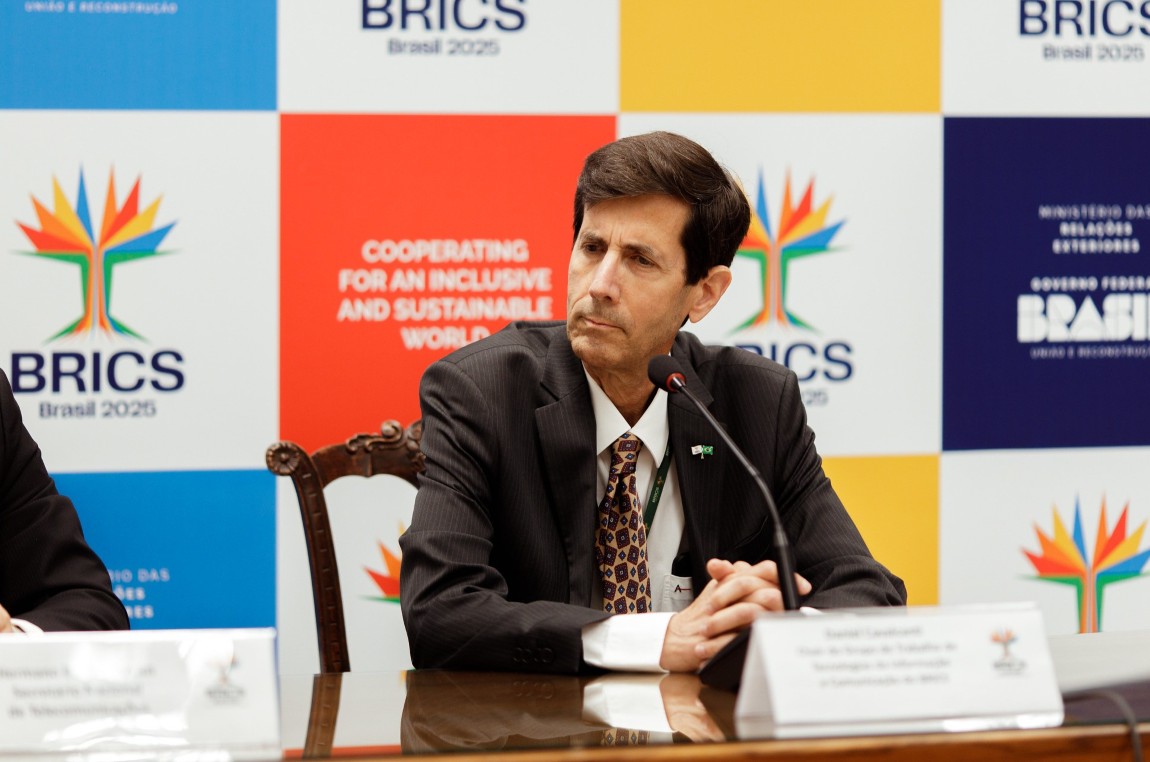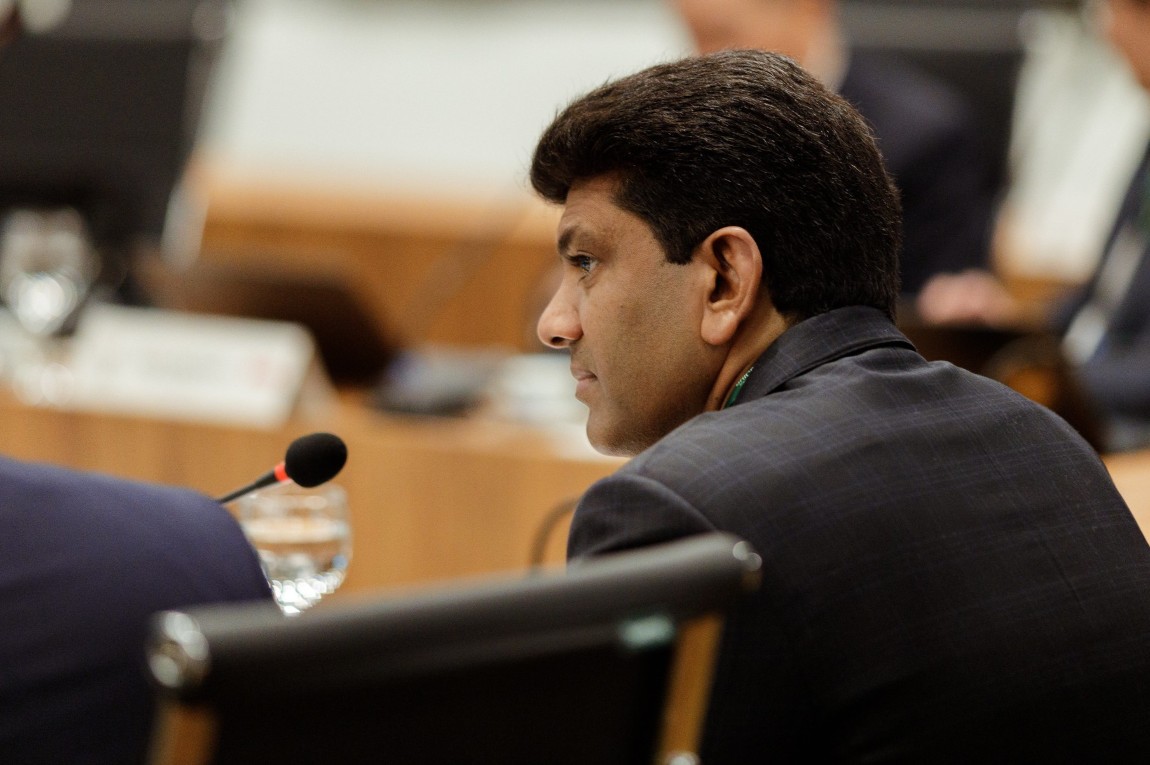BRICS advances debate on fair access to information technologies in outer space
The issue was considered the "greatest achievement" of the working group. Their annex to the Declaration of Ministers of Communications includes considerations on the international regulation of the resource in question

By Mayara Souto | BRICS Brasil
The BRICS Ministers of Communications approved on Monday 2 June the Ministerial Declaration of Cooperation in Information and Communication Technologies (ICTs). The document explicitly addresses the sustainability of outer space. An annex was also produced on the importance of fair access to space for countries, to enable communication, exploration and related scientific activities. The meeting took place at the Itamaraty Palace in Brasilia.
“Advances in space sustainability is possibly the greatest achievement of the Brazilian presidency. There are a number of dimensions to space sustainability, which is internationally coordinated by various United Nations agencies. In the specific case of telecommunications, which involves the use of radio frequencies and the occupation of orbital positions, the competence lies with the ITU—the International Telecommunication Union”, ICT working group chair Daniel Cavalcanti stated in a press conference.
“For 40 years, the ITU has carried out very efficient and highly successful regulation of the so-called geostationary orbits, or geostationary satellites. In the past, geostationary satellites were launched one at a time, but in recent years, constellations of non-geostationary satellites are being launched by the hundreds. A single rocket can sometimes launch over a hundred non-geostationary satellites. But the reality is that the ITU does not have a clearly defined mandate to regulate this specific environment of non-geostationary satellites,” he added.
Geostationary and non-geostationary orbits differ in their movement relative to Earth, orbit duration, and altitude. The former appear static because they align with Earth’s rotation, lasting 24 hours and remaining at a stable distance from the ground. The latter are much faster, can last several minutes, appear to move across the sky, and vary in altitude. Both mechanisms are used for communication, internet, TV broadcasting, and meteorology.
A practical example to understand the difference between the two types of satellites is Starlink’s well-known, non-geostationary satellite internet. Since these satellites are closer to Earth, the connection tends to be faster. However, the lack of regulation for this type of satellite creates inequality in the use of space, which is considered a limited resource.
“BRICS has come to an agreement on the importance of reinforcing the ITU’s role in the area of non-geostationary satellites, with a specific mandate addressing the matter. The goal is to avoid a scenario in which space, which is a common good as an environment used for communication, would be occupied on a ‘first come, first served’ basis. [We want] this to be done in a fair and organized fashion, allowing all to benefit from this resource,” Cavalcanti explained.

BRICS’s annex on space sustainability invites member countries to support the international regulatory efforts deployed by the ITU and other United Nations organizations on the issue. It also recommends sharing information on national regulations and calls for the joint development of tools and research, such as studies using Artificial Intelligence (AI) to optimize the management of space connectivity resources.
“It can be difficult to define clear geographical areas may, which is why it would be extremely useful to create this kind of ideologies and cooperative dialogues. And this is something that all countries are doing. The race to space is in full bloom, we observe a lot of space debris, and signal interference is happening. Coordinating all this is therefore becoming a top priority,” commented Pemmasani Chandra Sekhar, India’s Minister of Communications, in an exclusive interview with BRICS Brasil.
The financial aspect was also highlighted as central to Information and Communication Technologies (ICTs) by the interim Minister of Communications, Sonia Faustino. “Information and communication technologies—ICTs— and digital topics broadly speaking are central to today’s economy. This explains why they are also at the center of many international negotiation processes in various arenas and forums, such as artificial intelligence and cybersecurity,” she stated during the opening of the ministerial meeting that was held at the Itamaraty Palace.
Universal Connectivity
As a legacy of the discussions held under Brasil’s G20 presidency, the Communications Working Group further detailed actions to promote “meaningful connectivity.” The term refers to a safe, positive, productive and accessible online experience for all.
“So we agreed on indicators in the G20 and we started measuring. Each country has its own statistical institutions that collect data on connectivity. But it is important to highlight that there are additional elements of meaningful connectivity that need measuring. And Brasil does this very competently through CETIC-BR,” the ICT’s working group chair explained.
These indicators show a “gap” between so-called “nominal” connectivity and actual connectivity, the real indicator. “Beyond quality, affordability, adequate devices, safety and digital skills, in order to effectively participate in this digital transformation, one needs these additional elements of meaningful connectivity. This is why a report was produced. It provides a snapshot of where each country stands at present, with a focus on the application of meaningful connectivity indicators in Brasil to serve as a benchmark,” Cavalcanti added.

“I would say that the issue of meaningful connectivity is particularly important, because Brasil has created a specific way to create this meaningful connectivity—a scoring mechanism based on service quality, affordability, and availability. So creating this scoreboard really takes the issue to the next level,” the Indian minister pointed out. According to the Declaration, among the points to be considered for this measurement are the lack of funding and of affordability.
Expanding the debate
The Ministers of Communications’ Declaration also approved the creation of two new Study Groups related to ICTs: Future Networks and Digital Public Infrastructure (DPI).
The first was proposed as early as 2019, also under the Brazilian presidency of BRICS. Its aim is to maintain contact and research cooperation in the field of telecommunications among member countries. Brasil designated the Telecommunications Research and Development Center (CPQD) as the body responsible for this topic. However, other member countries requested more time to assess the most appropriate agency. Thus, it was only this year that the new mechanism finalized, once again under Brasil’s presidency.
As for DPI, it concerns public digital platforms, such as gov.br and the payment system PIX. The idea is for this working group to share experiences related to the implementation and governance of digital public goods.
English version Enora Lessinger (POET/UFC)
Proofreading Luana Ferreira de Freitas (POET/UFC)